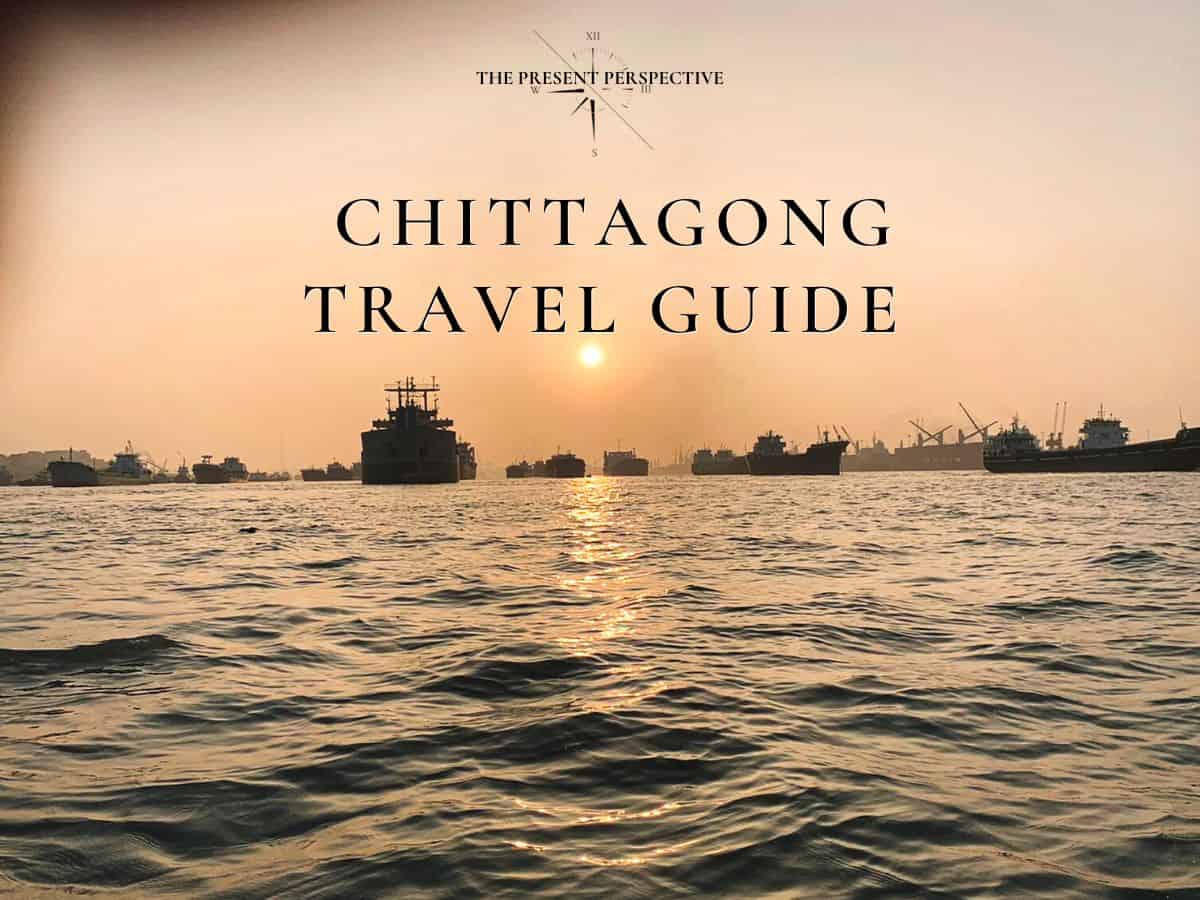
When we bought our flights to Bangladesh, we had no idea just how incredible of a place we were about to visit. We were invited to the wedding of one of Angel’s closest friends from her semester in Australia, and that is not the kind of invitation you turn down! Visiting Chittagong, Bangladesh was one of the most unique and incredible travel experiences that we’ve had in our lives, and we really hope you get the chance to visit, too.
Chittagong is the second biggest city in Bangladesh and operates one of the biggest ports in all of Southern Asia, making it an extremely important and bustling city that is definitely worth a visit. This guide will give you a detailed look at everything you need to know for your trip to Chittagong, including tips from our friends who grew up there.
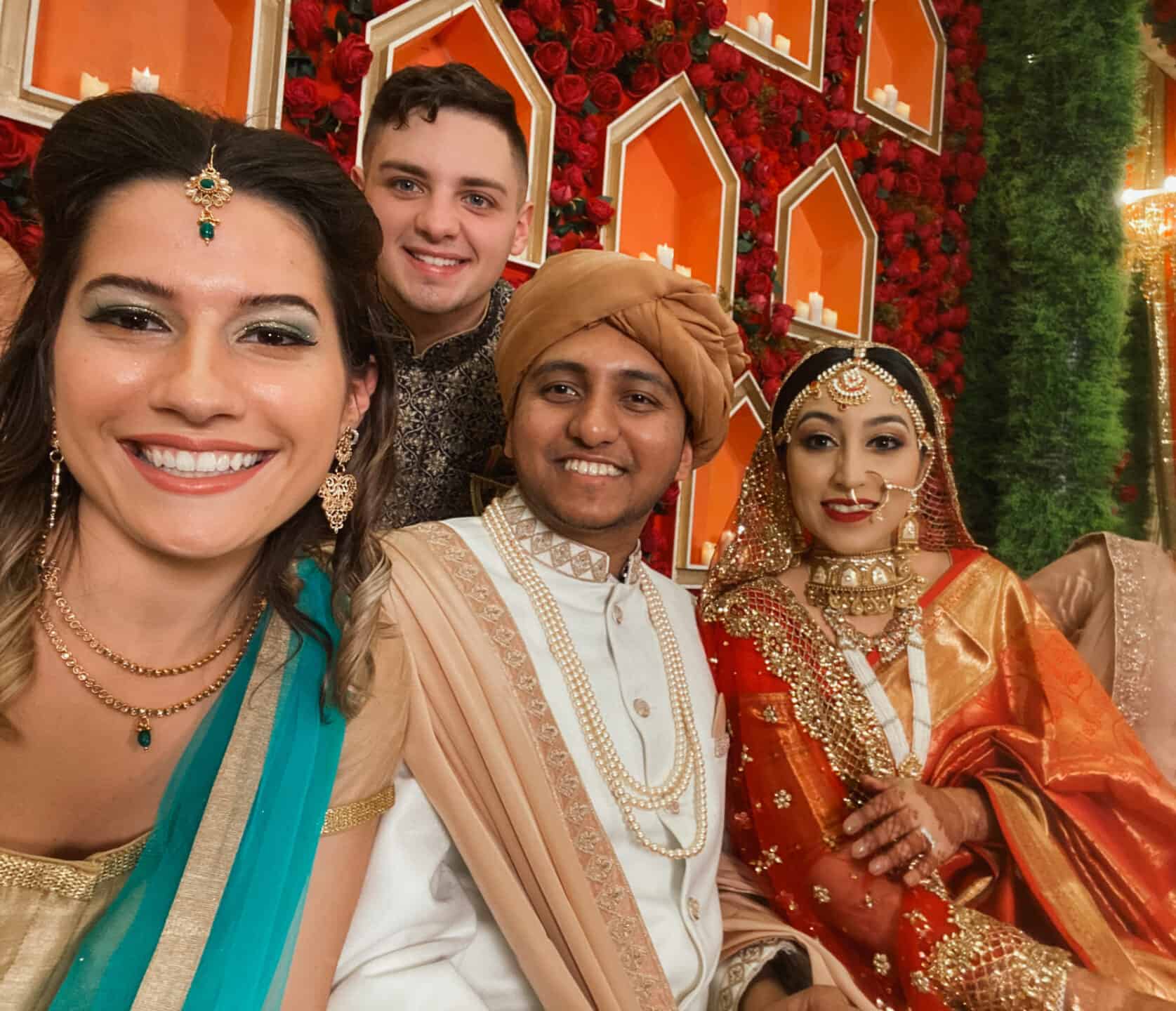

But First, Is It Chittagong or Chattogram?
If you’ve been researching a trip to Chittagong, you’ve probably come across two different names for the city: Chittagong and Chattogram. First things first, they are two names for the same city, and can be used interchangeably! Bangladesh and Pakistan were both part of India while it was under British control for hundreds of years, and Chittagong is the name that the British gave to the city.
Over time, it became the internationally recognized name of the city. In recent years, in a push to preserve Bangladeshi culture and tradition, the city officially reverted back to the name Chattogram, but the city is still widely called Chittagong – even by the locals!
So in short, Chattogram is now politically correct, Chittagong is more popular inside and outside of the country due to its use over the past century, and both are acceptable names for the city.
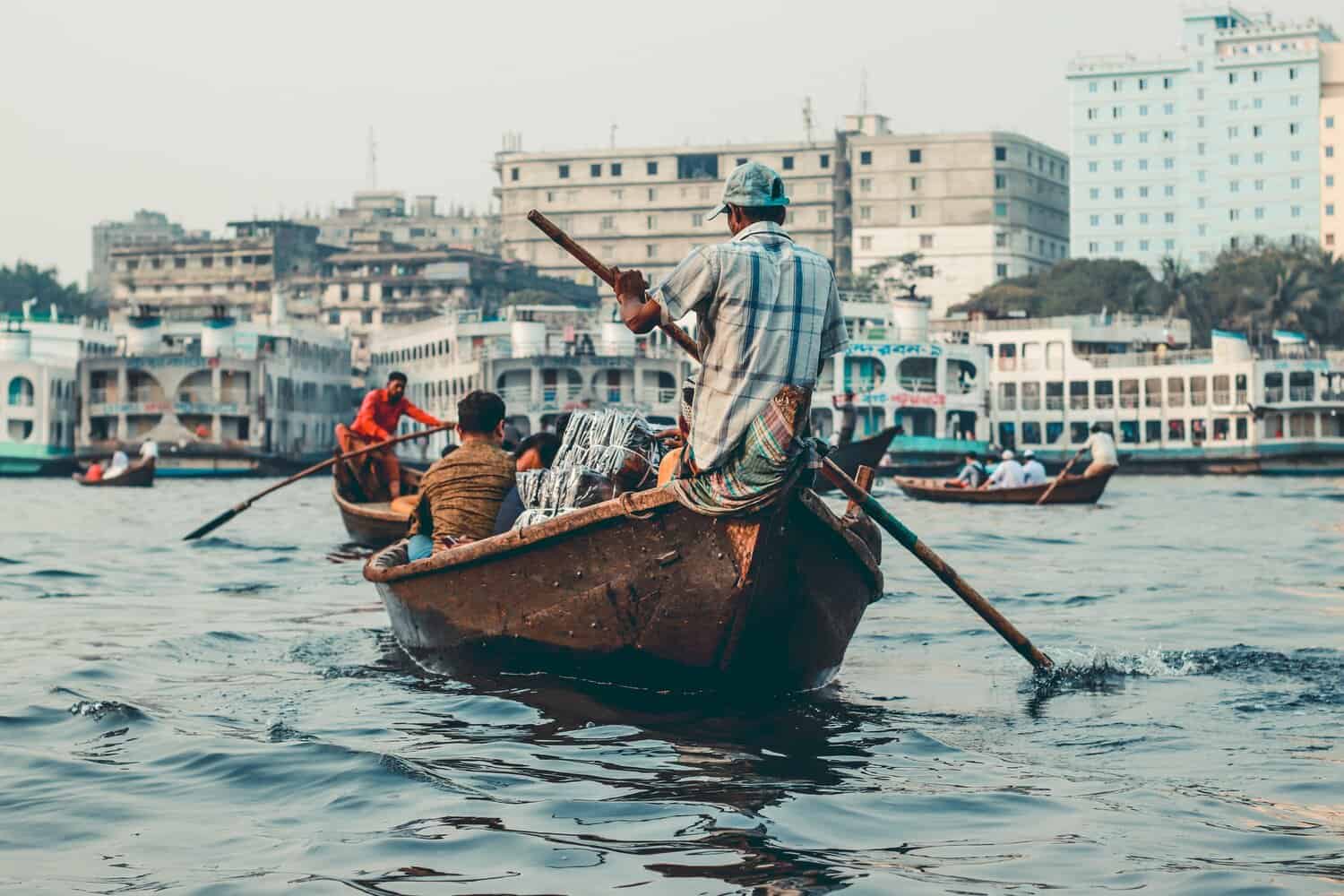
Top Things to do in Chittagong as a Tourist
Chittagong is not much of a tourist city. It’s a very industrial, busy place because of the port and all of the ships passing through. However, while not many tourists go to Chittagong, that doesn’t mean that there aren’t awesome things to do! Odds are if you’re heading to Chittagong as a foreign tourist, you probably already have some other travel experience under your belt, and you’re prepared to check out some of these more local experiences!
1. Learn About Ship Breaking
I’m sure you have heard of ship building, but have you heard of ship breaking? Ship breaking is the idea of taking apart old ships and salvaging the parts to use in newer, better ships. Ship breaking is one of the biggest industries in Chittagong, and fittingly Chittagong is one of the leading ship breaking cities in the world. Essentially, local companies buy old ships for very cheap prices, disassemble them, and sell off their functioning parts for a nice profit.
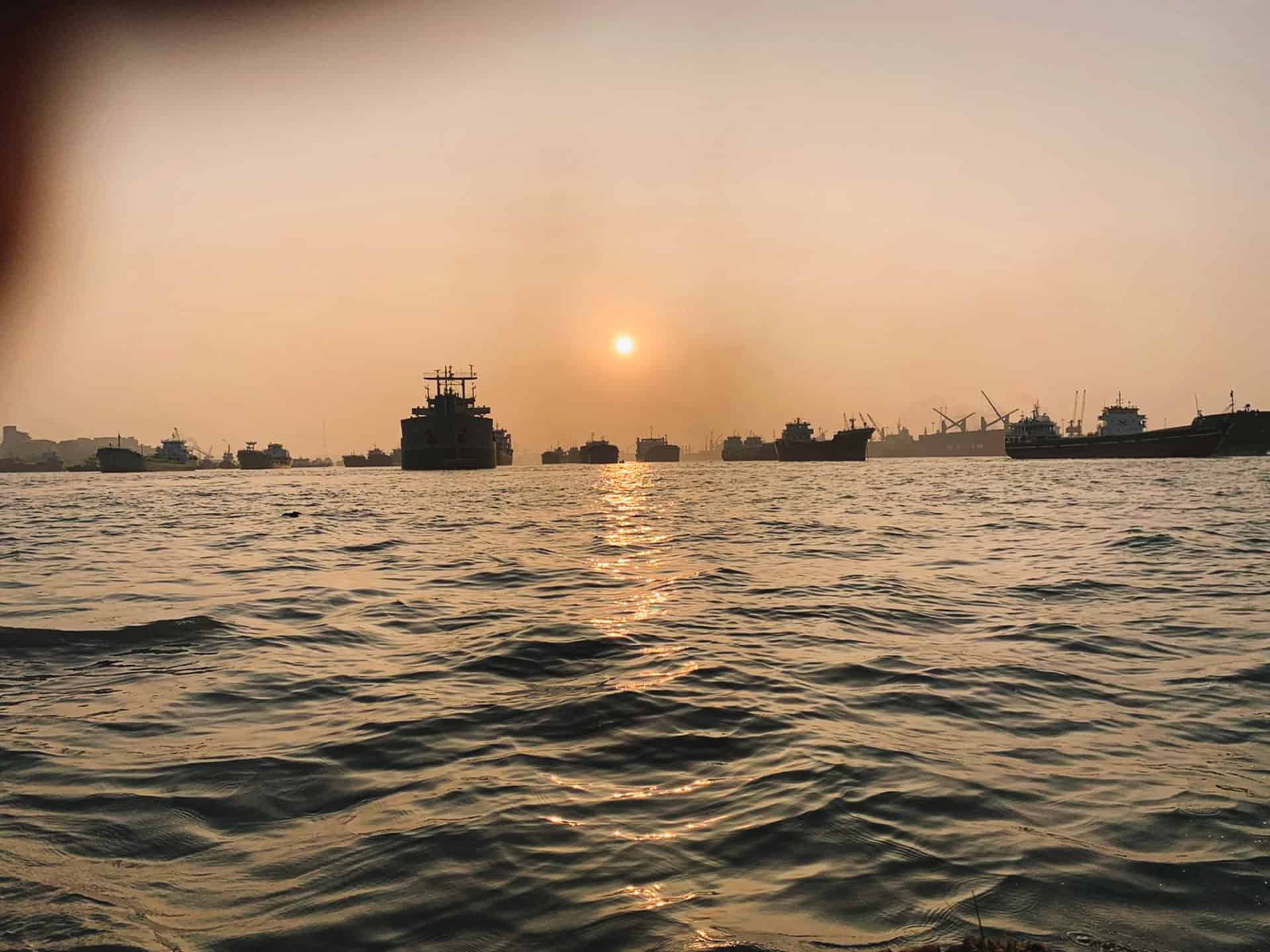
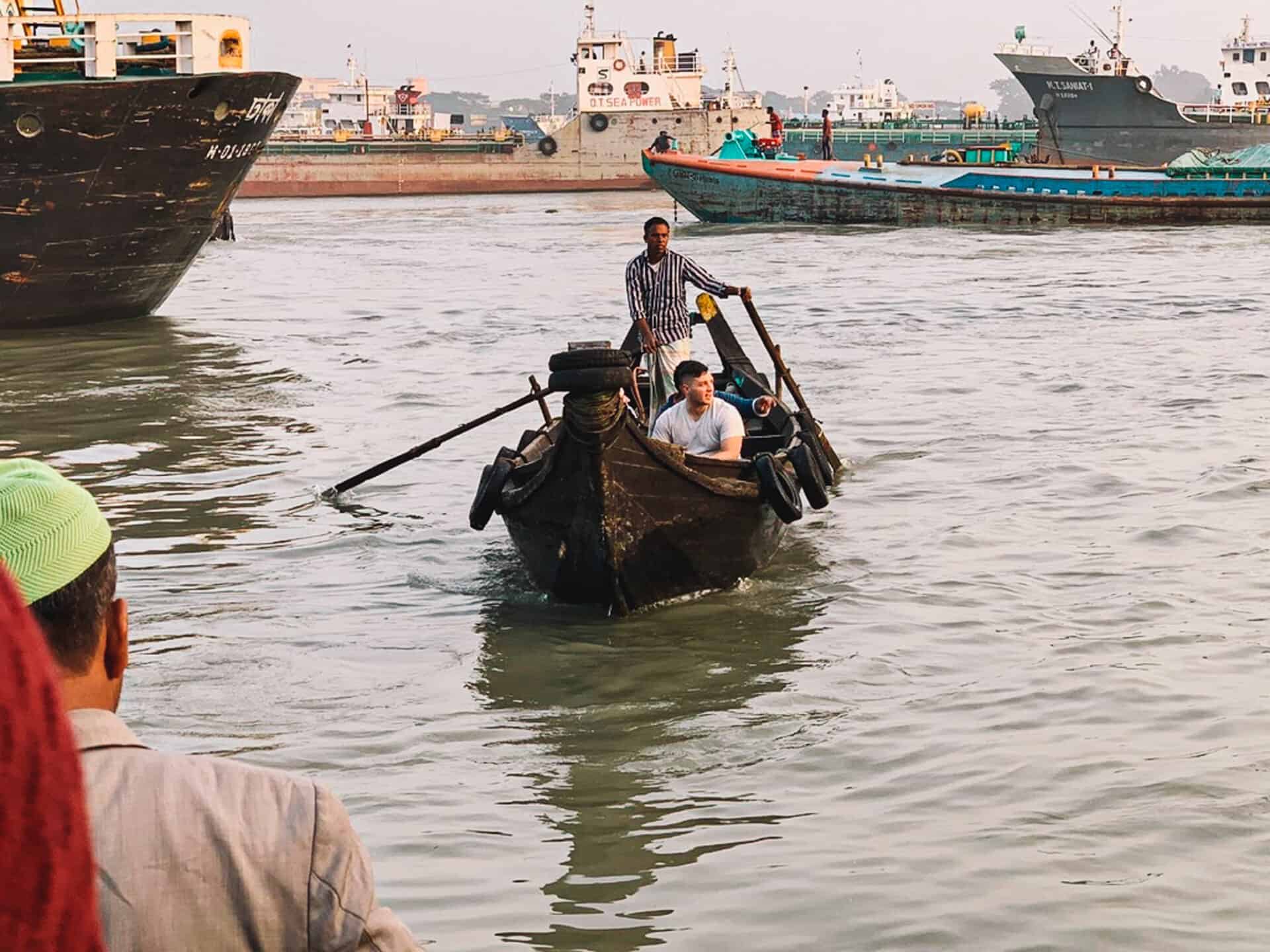
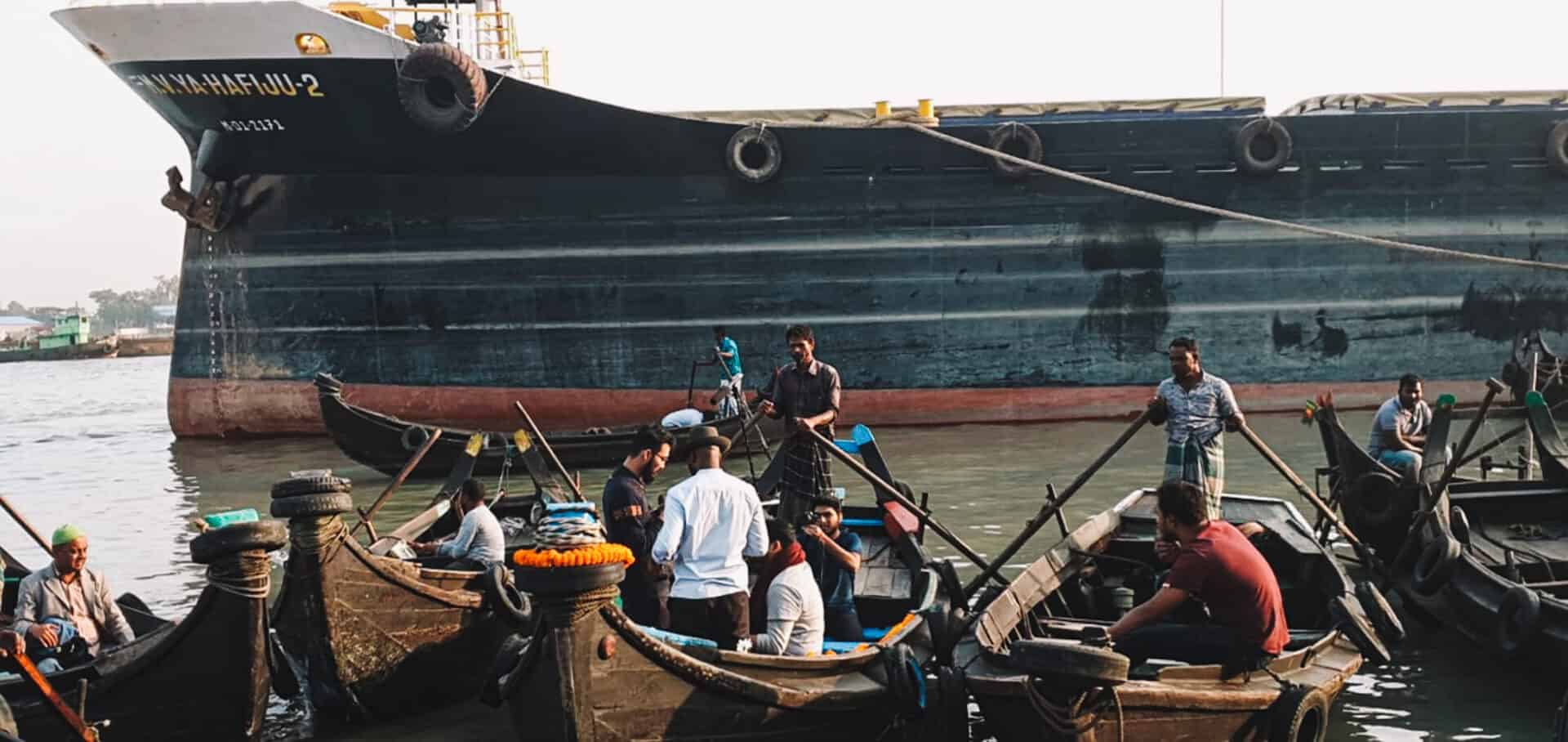
This business model is genius, but there’s an added component to the ship breaking industry as well; sustainability. Ships are giant, and the ship breaking industry properly disassembles and scraps them, reducing all kinds of damages that would otherwise be done to the environment. Reusing these enormous amounts of metal also reduces the need to exhaust mines around the world, saving more raw materials for the future. If this sounds interesting to you, you can go on a tour of the ship breaking yard!
2. Visit a Fish Market
I mentioned that Chittagong is one of the busiest and biggest port cities in all of South Asia. Fittingly, some of its best foods come from the sea, as the fishing industry is also huge here. There are so many unique kinds of fish dishes that are cooked up all around the port area, and the best way to figure out what you want is to simply visit and look!

No visit to Chittagong is complete without going to the fish markets in Sagarghat.
Fish is such an important dietary staple to the people in Chittagong, and they’ve learned to prepare it pretty well! Eating the fish is incredible, but walking through the market is such an amazing cultural experience that it should not be missed.
For an awesome video about cuisine in Chittagong, check this out.
3. Visit One of the Many Lakes and Rivers
I mention this in more detail later in the section on the top things to do outside of Chittagong, but it’s worth mentioning here as well. There are a ton of awesome lakes and rivers to visit outside of the city, but there are also several great lakes and rivers to visit that are even closer. The Karnaphuli River is probably the most notable of these. This river is the lifeline of the country because Chittagong’s port is located on it, and all the smaller vessels travel along it to carry goods all over the country.
The place is perfect for a quick boat ride. You can get a boat from Sadarghat and Avoy Mitra Ghat, and enjoy a peaceful boat ride along the thin river that is considered the artery of the country. There are boats of every variety – cargo, passenger, and fishing – all over the river, and it’s definitely a serene getaway from the busy city.
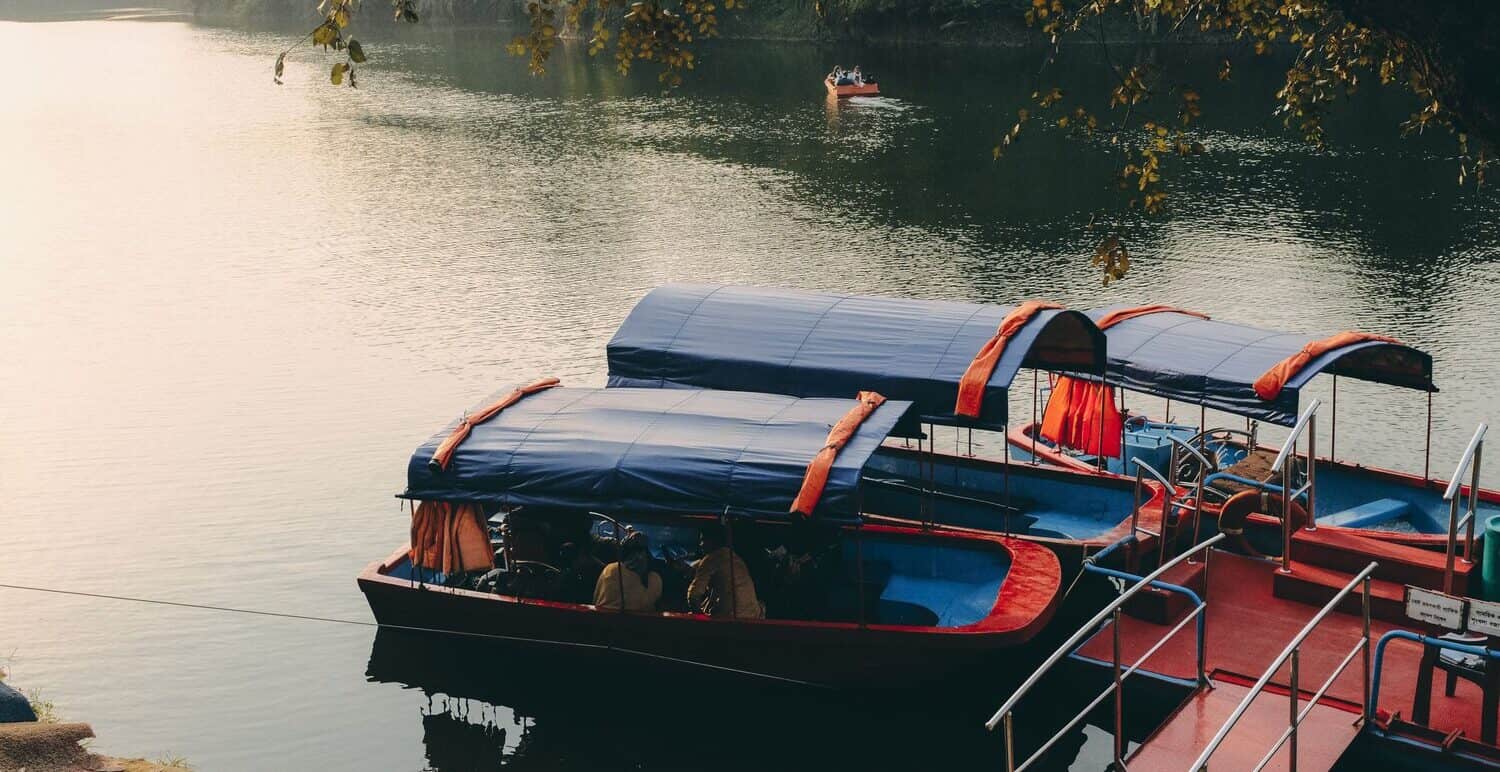
4. Shop for Cheap Clothing
If you’ve been to any of the top textile countries in the world – Bangladesh, China, Mexico, India, and Honduras, for example – you probably already know where this one is going. Bangladesh produces vast amounts of clothing and other textile goods for most of the leading brands in the world, including Nike, H&M, Uniqlo, and Zara. As a result, there is a ton of clothing for sale at dirt cheap prices in markets and shops all over Bangladesh.
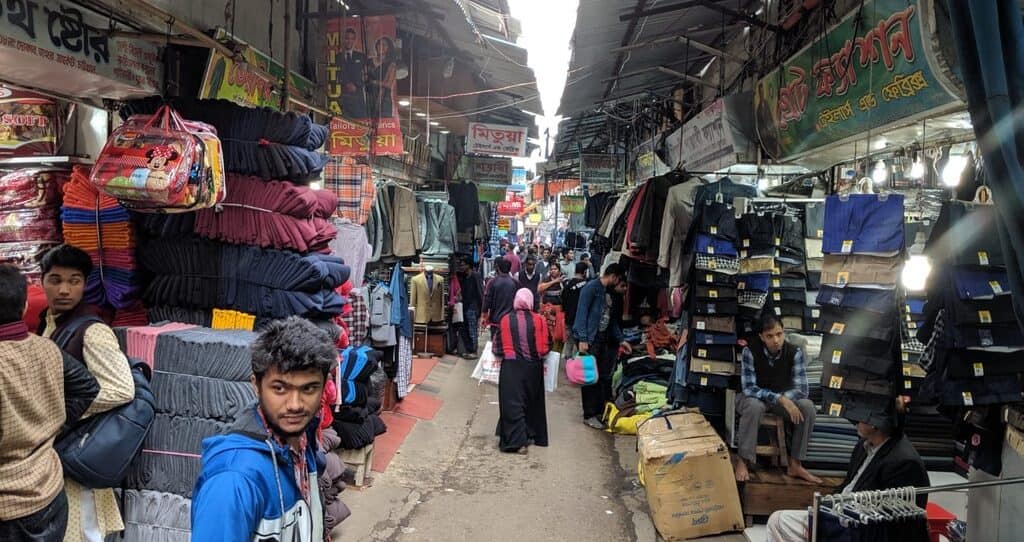
However, most of this clothing isn’t legal. Since Chittagong is the country’s main port, most of the outbound crates of cargo pass through here. As a result, thievery off of delivery trucks is super common, and the goods that are stolen are later sold under the table at various markets and shops. If it is deemed “export quality,” that usually means someone stole it from the factory and it is completely authentic. While it may be unethical, the company will never know you’re wearing their stolen property.
You can buy your clothes up to 50% off this way!
The other main thing you’ll find is counterfeit clothing, meaning someone created their own clothing and tried to pass it off as name brand. Often this is done by people who used to work in one of the factories and understand how the company makes specific items. These things are usually flawed, and if you keep an eye out you can normally pick them out. Again, illegal and unethical to buy, but lots of the stuff can last for fairly long and might be worth buying. A common way to tell that something is a knock-off is by checking for branding inconsistencies like upside-down logos, a combination of logos or trademarks by different companies, and stitching imperfections.
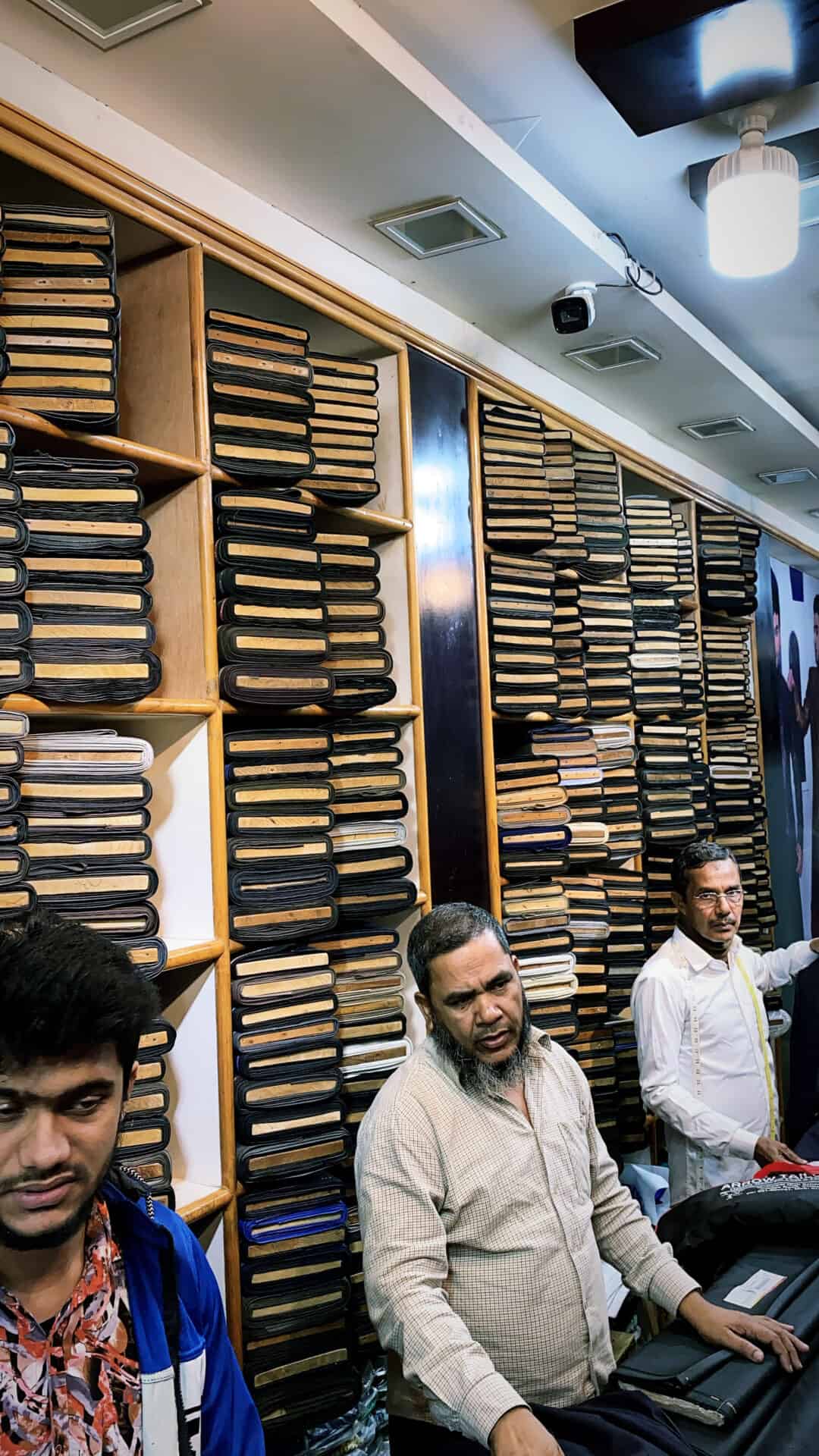
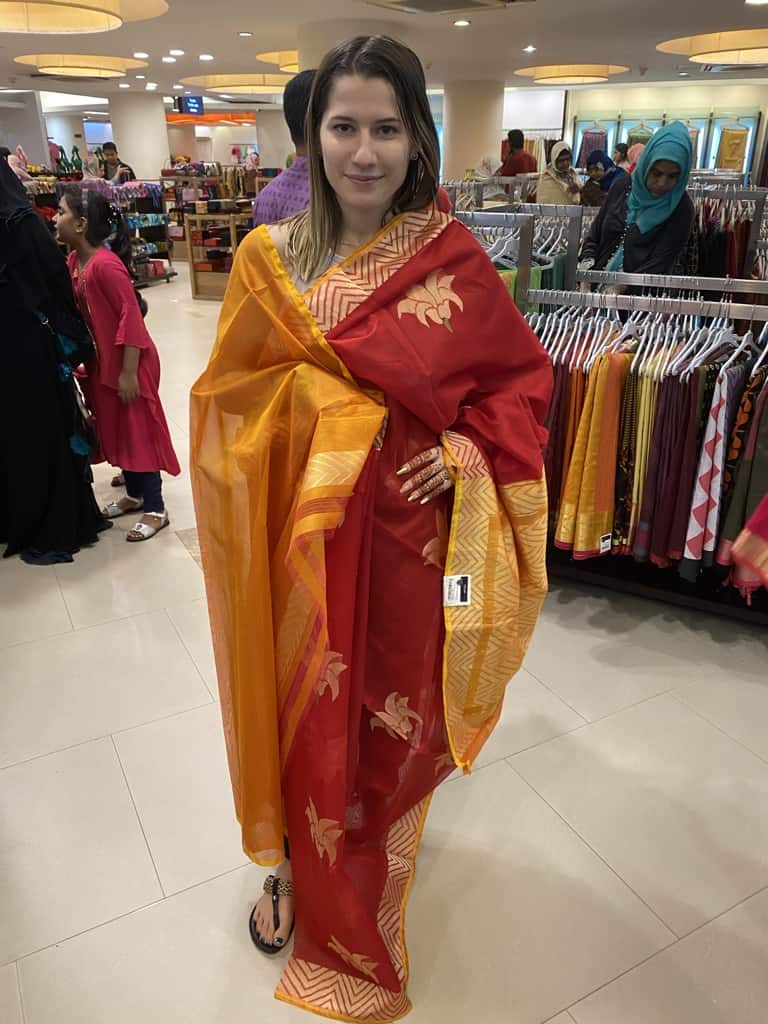

5. Go to a Cricket Match
Latin America and Europe have soccer. Australia has rugby. Every region of the world has its sport that people rally around, and for South Asia that sport is cricket. Cricket is extremely popular in Bangladesh, and it makes sense; Bangladesh is one of the top Cricket countries in the world when it comes to international competitions!
Cricket is a lot like American baseball but with some twists. Many people say that cricket was even the inspiration for baseball. Either way, going to a local sports match is often one of the coolest cultural experiences that you can have in a new place, and a cricket match in Bangladesh is one of the top cultural things that you can do!
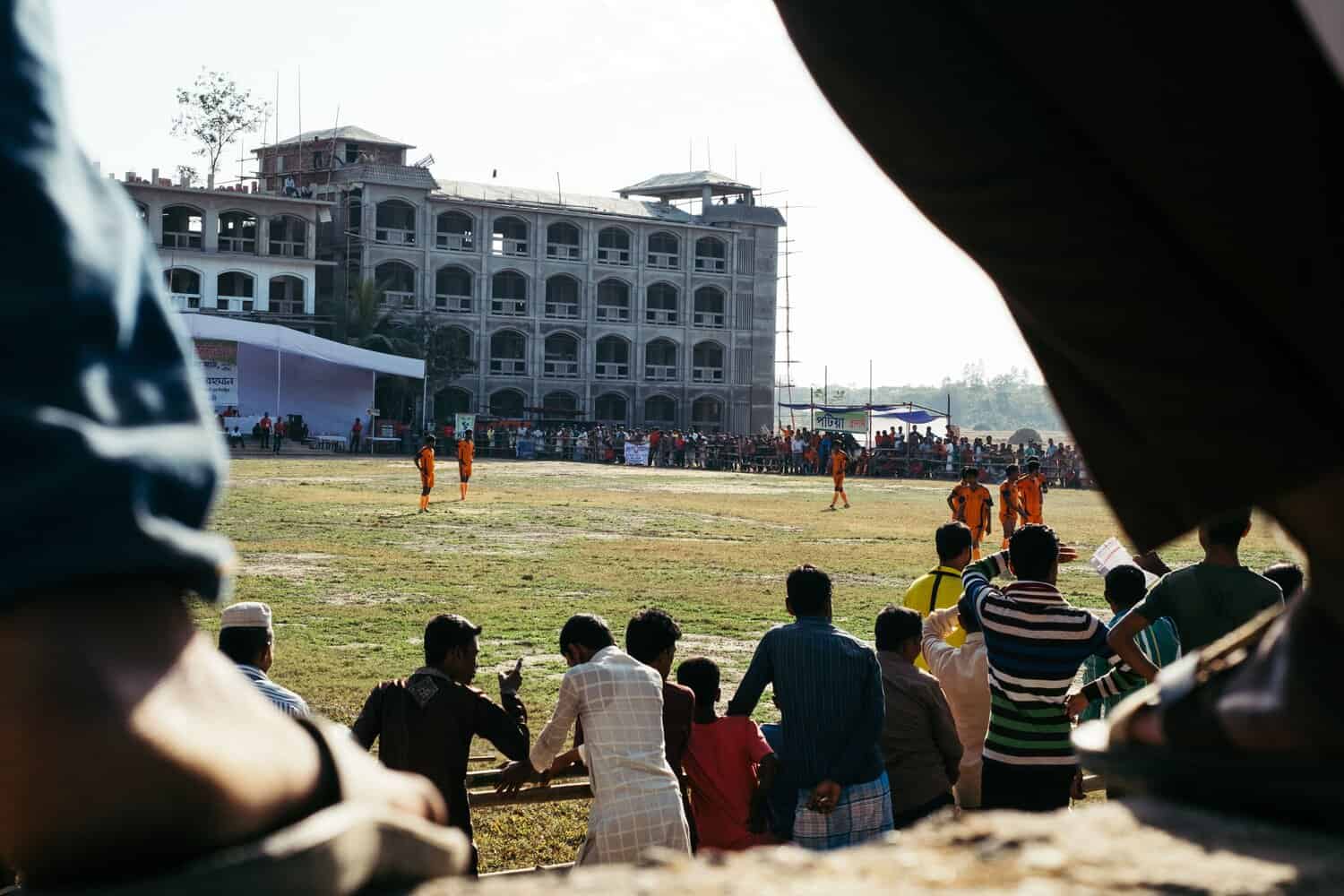
6. Visit a Local Farm in the Countryside
We put this one last because it’s pretty hard for the average tourist to do. We were in a unique situation, as we had Bangladeshi friends who invited us to their countryside farm house. In Chittagong, it’s very common for affluent families to own land outside of the hustle and bustle of the city. We pet goats, walked through rich fields, drank coconut water and milk tea with fresh cows milk, and had a wonderful meal of farm-to-table vegetables and meats.
If you happen to have Bangladeshi friends and they casually mention their farmhouse, ask to see it! It’s a wonderful experience and you get to see a whole other side of the country.
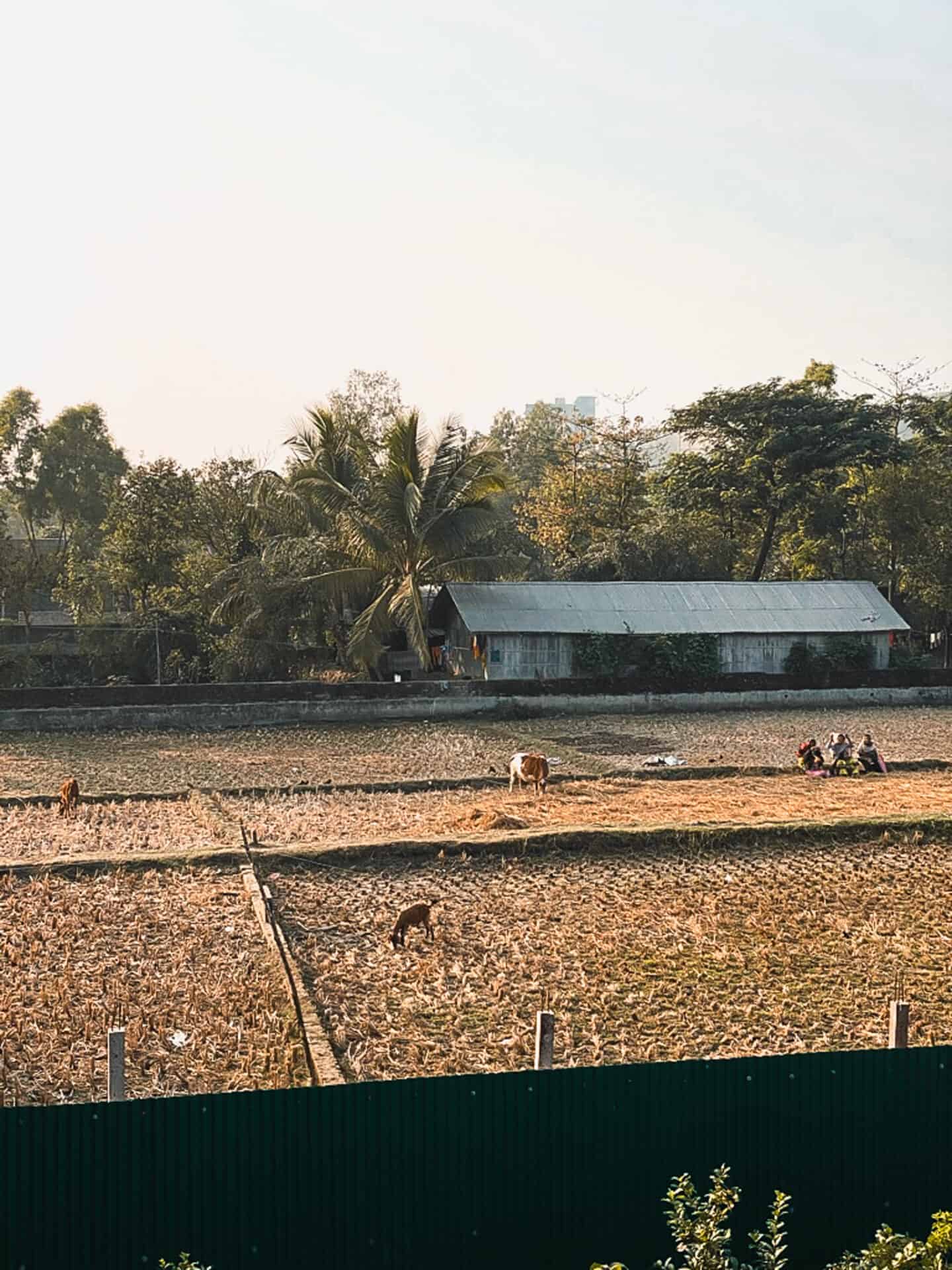
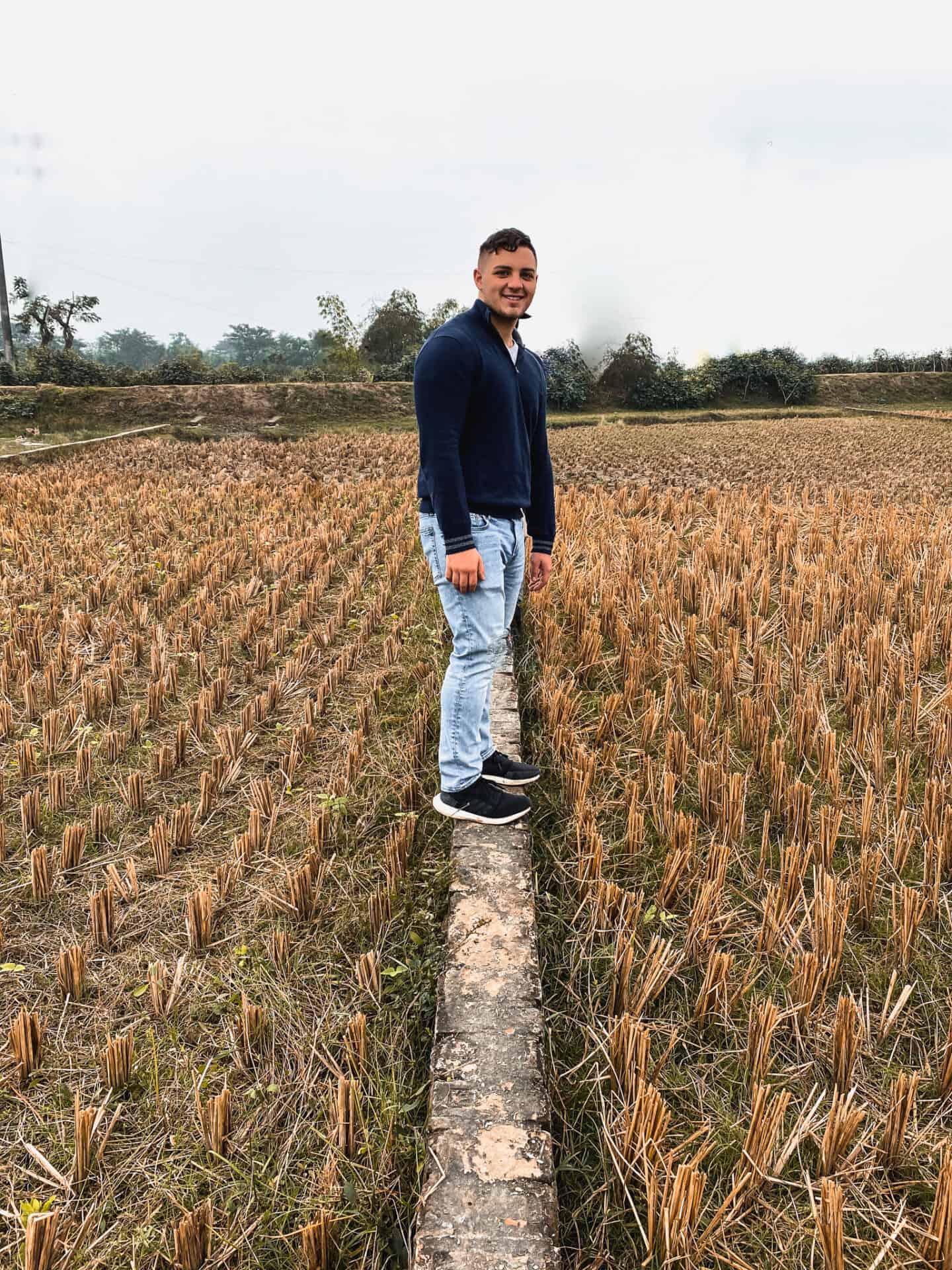
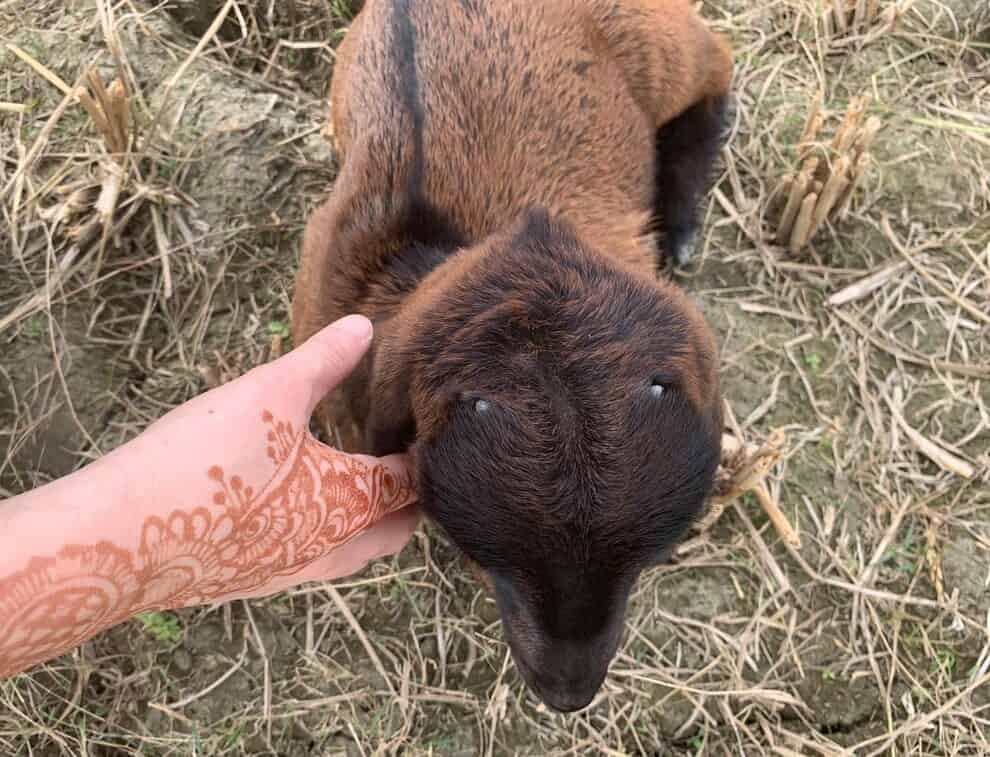

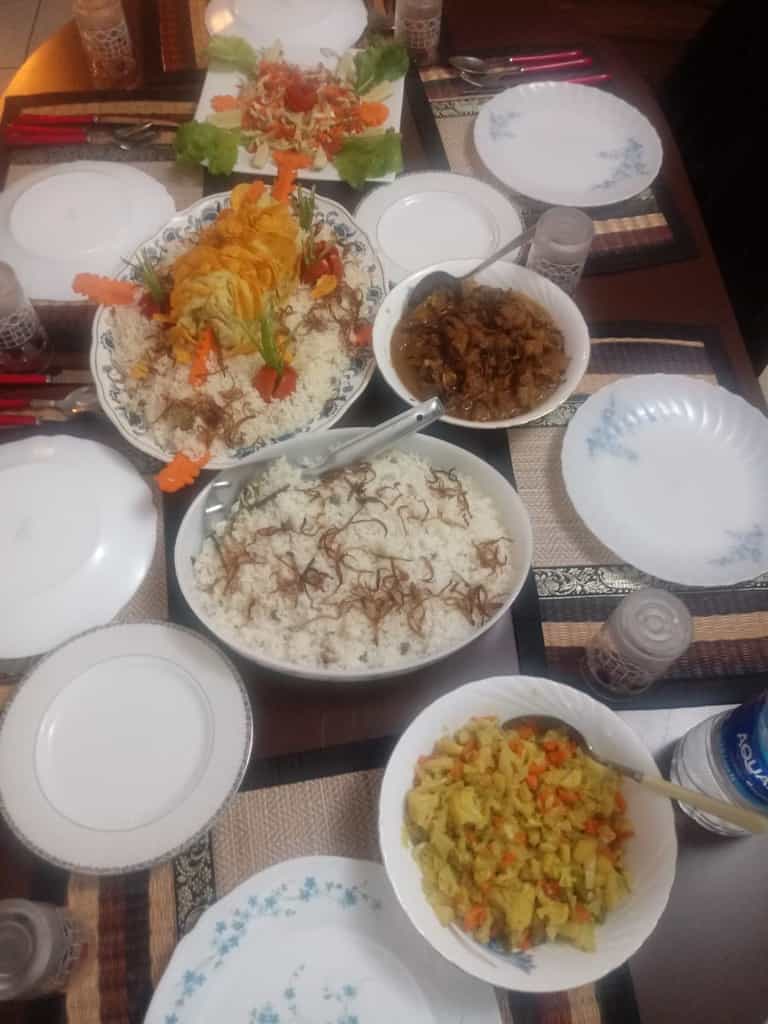
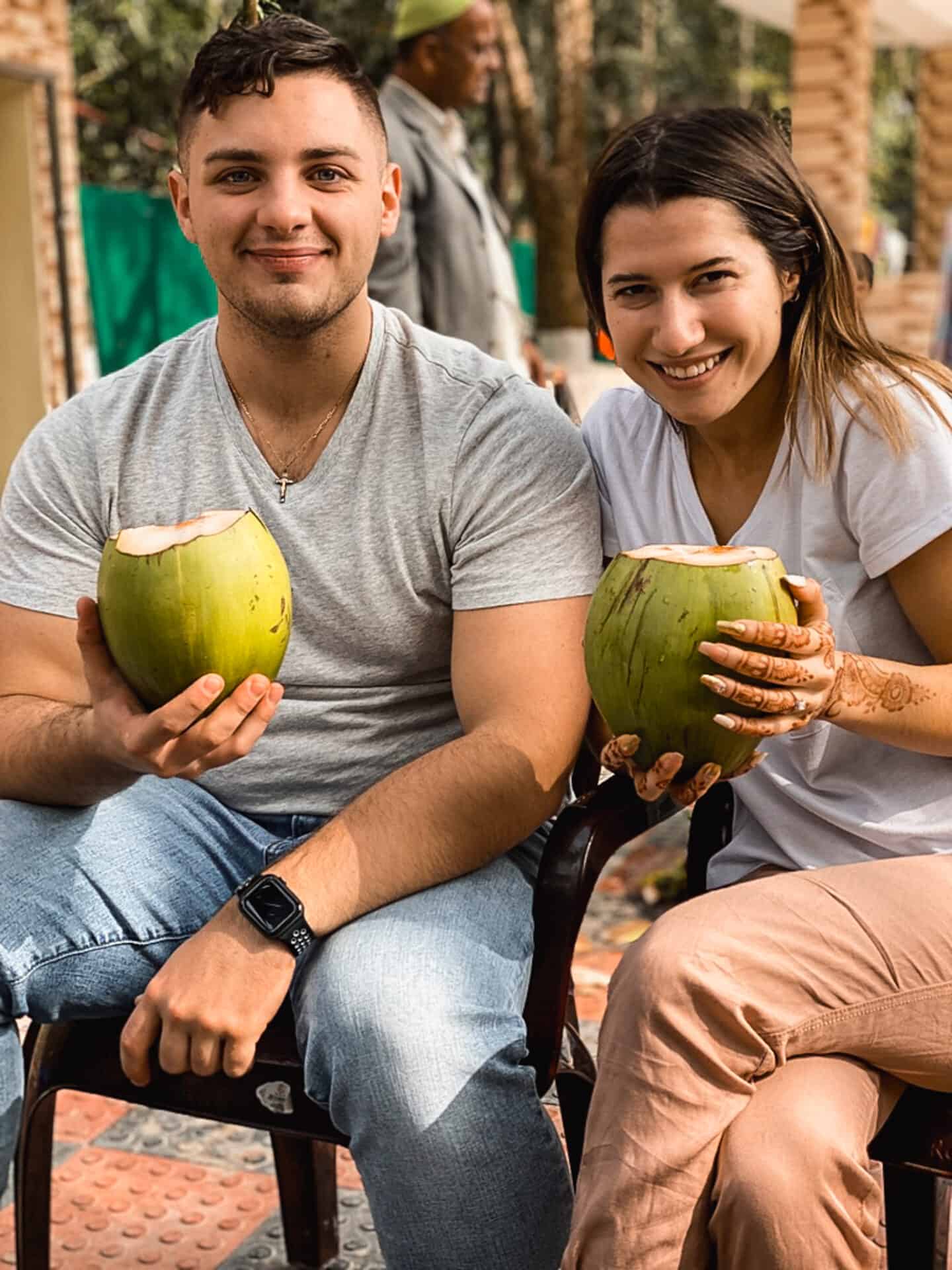
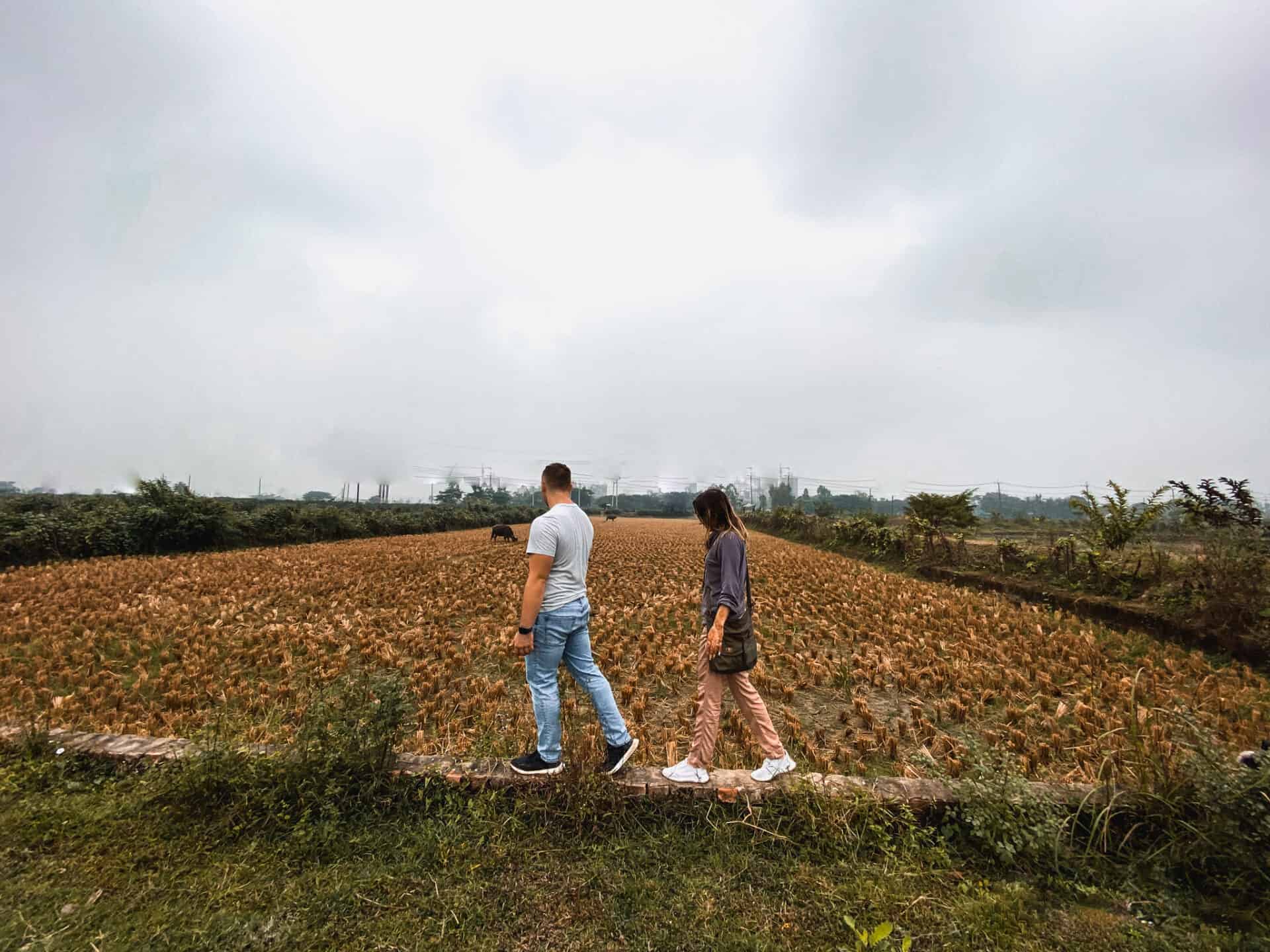
Top Places to Visit Near Chittagong
While there are countless cultural experiences to be had within the city, you may be thinking about heading outside of the city for a day trip or two. If that’s the case, here are our top recommendations for places to visit near Chittagong!
1. Cox’s Bazar
Located just a four-hour drive from Chittagong, Cox’s Bazar is a must-see beach destination. With its gentle slope to the water and an unbroken coastline of 96 miles, it is commonly referred to as “the longest natural unbroken sea beach” in the world. While Cox’s Bazar is famous for its beautiful beach, more recently it has earned international fame due the Rohingya crisis along the Bangladesh-Myanmar border, just 35 miles from Cox’s Bazar. Over the past two years, the city has been buzzing with international NGOs and foreigners working at the refugee camp housing over a million Rohingya refugees.
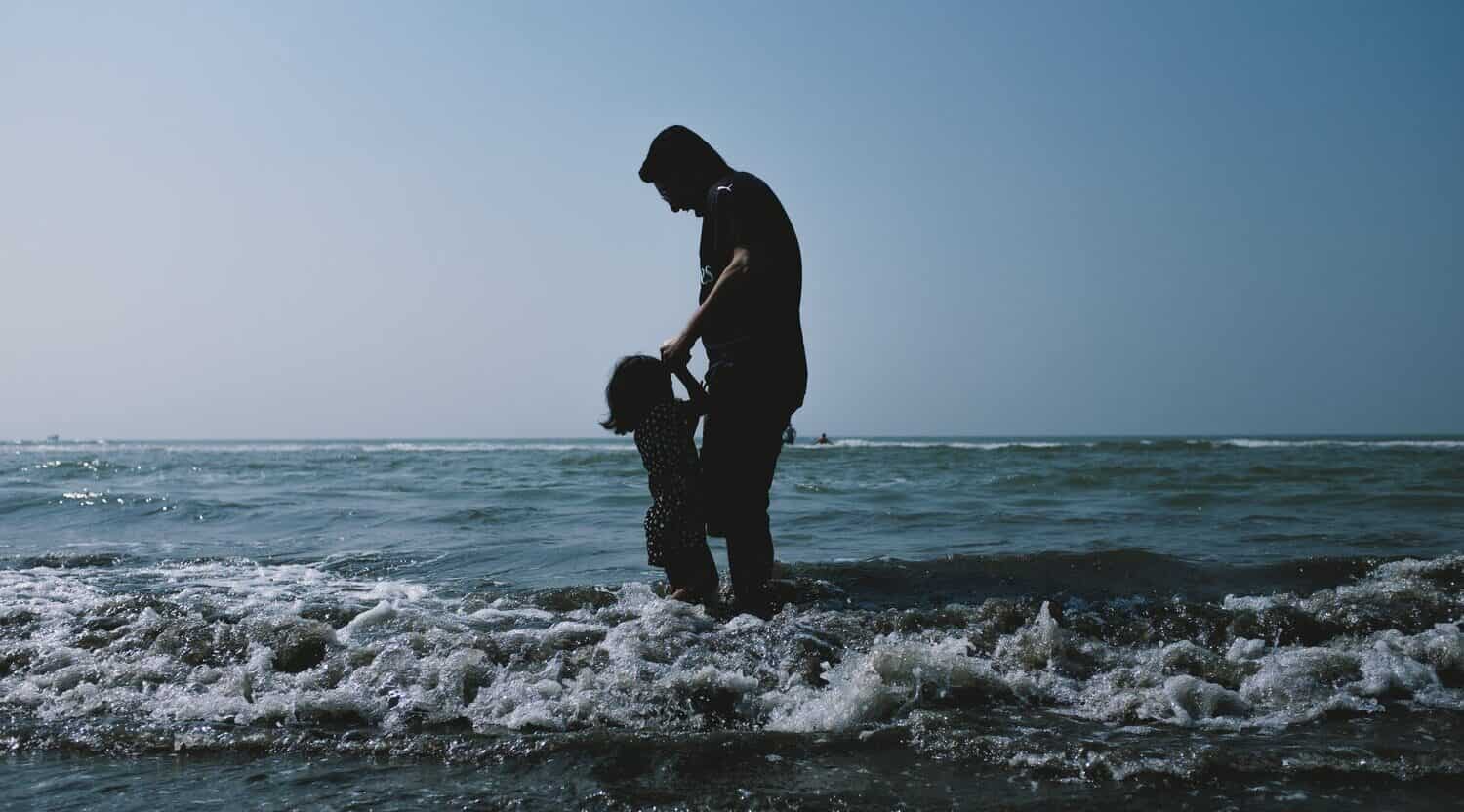
However, before the influx of Rohingya refugees and foreigners, Cox’s Bazar was the top Bangladeshi vacation destination because of its ever-stretching beach, the pleasing drive though Inani Road which is flanked by hills and the beach, and the Burmese markets. Also, the local cuisine is incredible here, and it consists mostly of fish, beef and ‘bhortas,’ which are basically purees made out of just about anything. On top of that, you can ride horse and bikes on the sand here, and surfing has become popular recently too.
2. Kaptai Lake
Kaptai Lake is one of the most popular attractions in the Rangamati District, which is right outside of Chittagong. This is the largest man-made lake in Bangladesh, and the best way to experience its beauty is with a relaxing boat ride. There are dense forests all around the lake, making this place feel like a serene getaway from the hustle and bustle of the city.
When you get to the lake, you’ll likely find plenty of captains waiting with their boats to take people onto the lake for a little while. Here you can also rent a boat to take you to the Shuvolong waterfalls, which are stunning and can only be accessed through the lake.
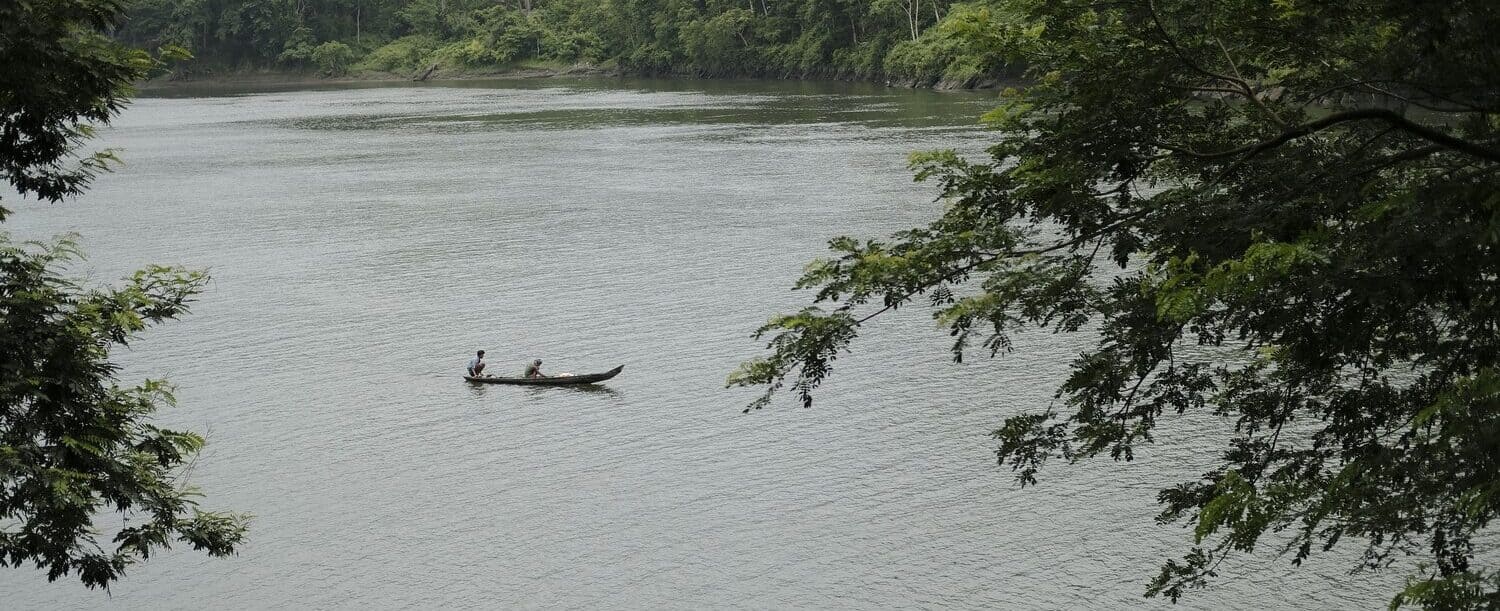
3. Bhatiari
Surrounded by several lakes and hills, Bhatiari is famous for its golf club, winding roads, and boat rides. It also is one of the highest points of Chittagong City, making it an insane place for viewing sunrises and sunsets. People head here on the weekend for peaceful picnics by the lakeside and to enjoy peaceful drives through the hills. As a side note, it is also the location of the Bangladesh Miltary Academy, so expect to come across some tanks and military people marching around.
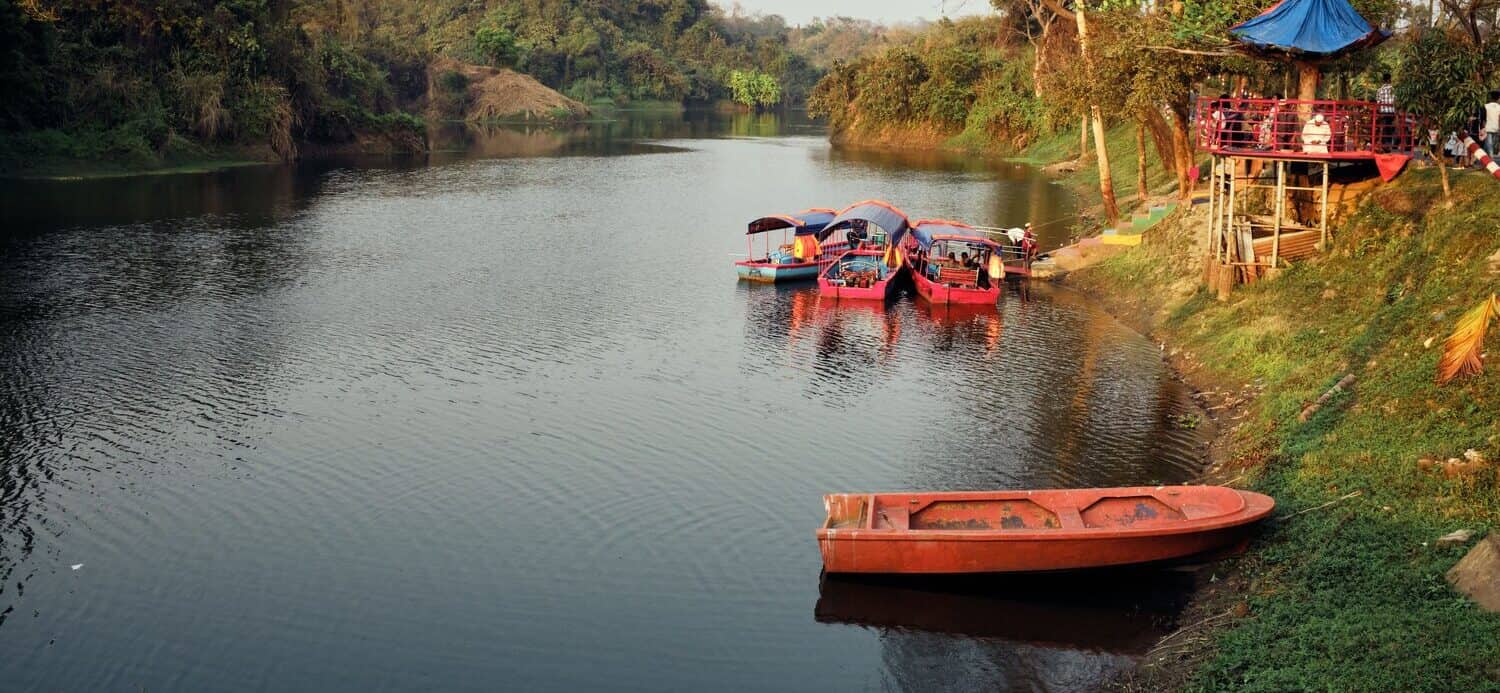
How to Get to Chittagong
Chittagong has one of the biggest airports in Bangladesh – Shah Amanat International Airport (CGP). To get to Chittagong, you don’t really have any other option other than flying into CGP. While the country’s capital, Dhaka, has an even bigger airport and typically cheaper flight prices, it’s a 7-hour bus ride away from Chittagong. There are many regional flights that travel between Dhaka and Chittagong every day, so visiting both Dhaka and Chittagong is certainly possible on your Bangladesh trip!
Bangladesh has very strong economic ties to a few places in the Middle East, so odds are that is where you will have a layover if flying from the Americas or Western Europe. Dubai and Abu Dhabi in the United Arab Emirates, Muscat in Oman, and Doha in Qatar all run direct flights to Chittagong, and the flight route from most major destinations in Europe or the Americas will pass through one of those four cities.
We flew from Muscat, Oman directly into Chittagong and then from Chittagong directly into Dubai on our way out. All of these cities are pretty big hubs, and depending on where you’re coming from you may only need one layover. Major cities like London, New York, Washington DC, and Paris all operate direct flights to these cities, meaning you’ll only have one stopover. Plus, each of these cities is worth a visit if you’re able to stretch out your layover!
How to Get Around Chittagong
UBER | PERSONAL DRIVER | TUKTUK
Like in many places, as a tourist your best bet is Uber. Bangladesh is a pretty hot and humid country and getting in an Uber means stepping into a nice, air-conditioned car. It is also the safest and most convenient means of transportation, like ride-sharing apps tend to be. Ubers tend to cost a bit more than the other methods on this list, but the comforts are worth it. If you’re staying around the city, you won’t need anything other than Uber.
You need a driver in Bangladesh.
If you are staying at a hotel and intend to travel to destinations that are a few hours away, you’re probably better off renting a car for the whole day. Driving in Bangladesh is far from easy – the traffic and rules of the road are wild! If you’re rending a car, you’ll probably also want to pay a driver to chauffeur you around for the day. A car and a driver should cost you around $85-100 dollars for the day.
If you want a cultural experience, you can consider enjoying the local, popular modes of transportation. The only catch is that most of these drivers will speak no English, and you’ll need to figure out how to communicate with them!
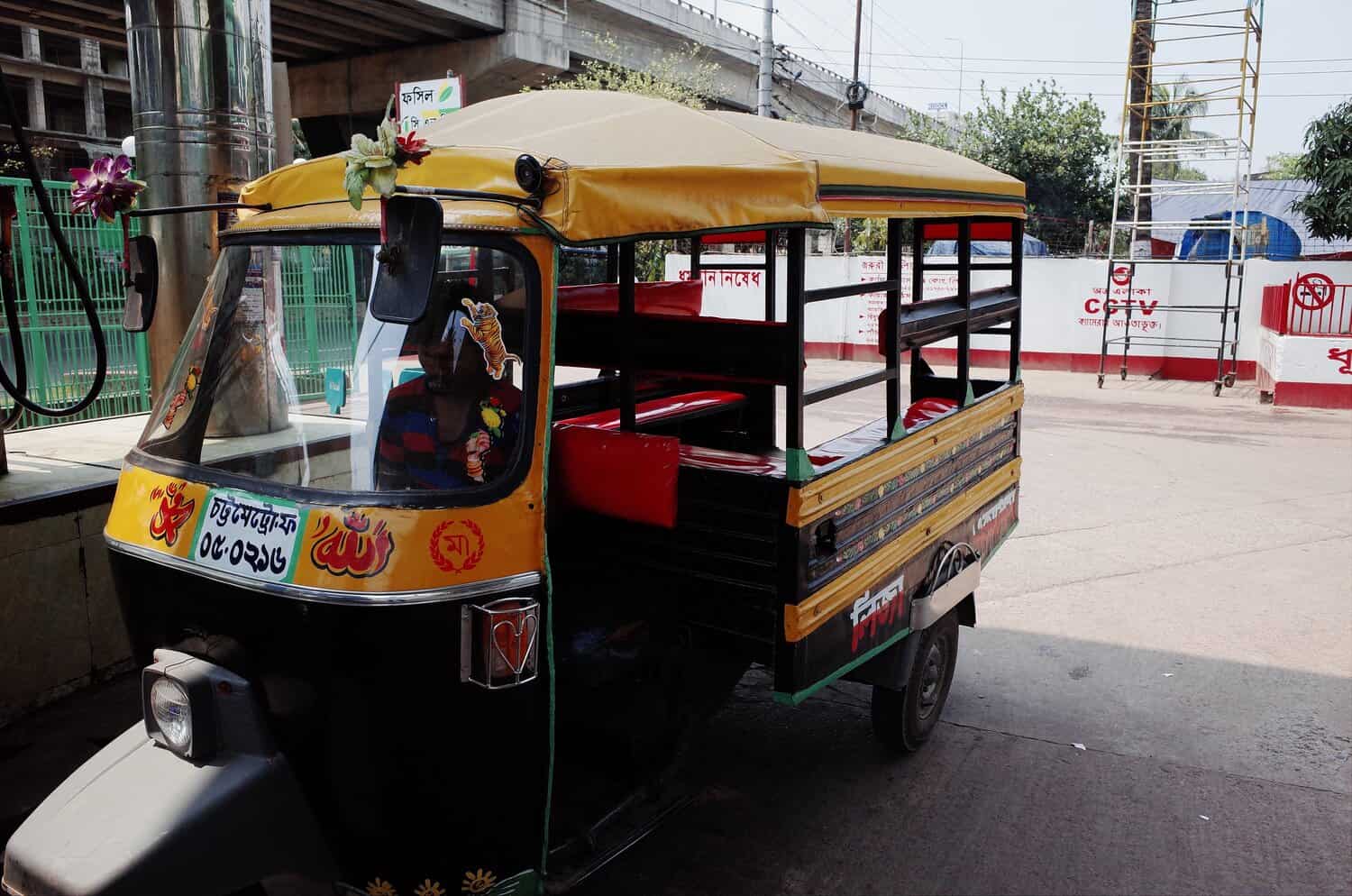
If you’re comfortable with hand motions and Google translate, a tuktuk or a rickshaw are definitely worth trying out! A tuktuk, or CNG as the locals call it, is basically a three-wheeled miniature car, and a rickshaw is a two-wheeled carriage that is pulled either by a person or a bike. A short-haul trip on a tuktuk should cost from $2-4 dollars while a rickshaw won’t be more than $2-5 dollars.
Chittagong Tips from our Local Friends
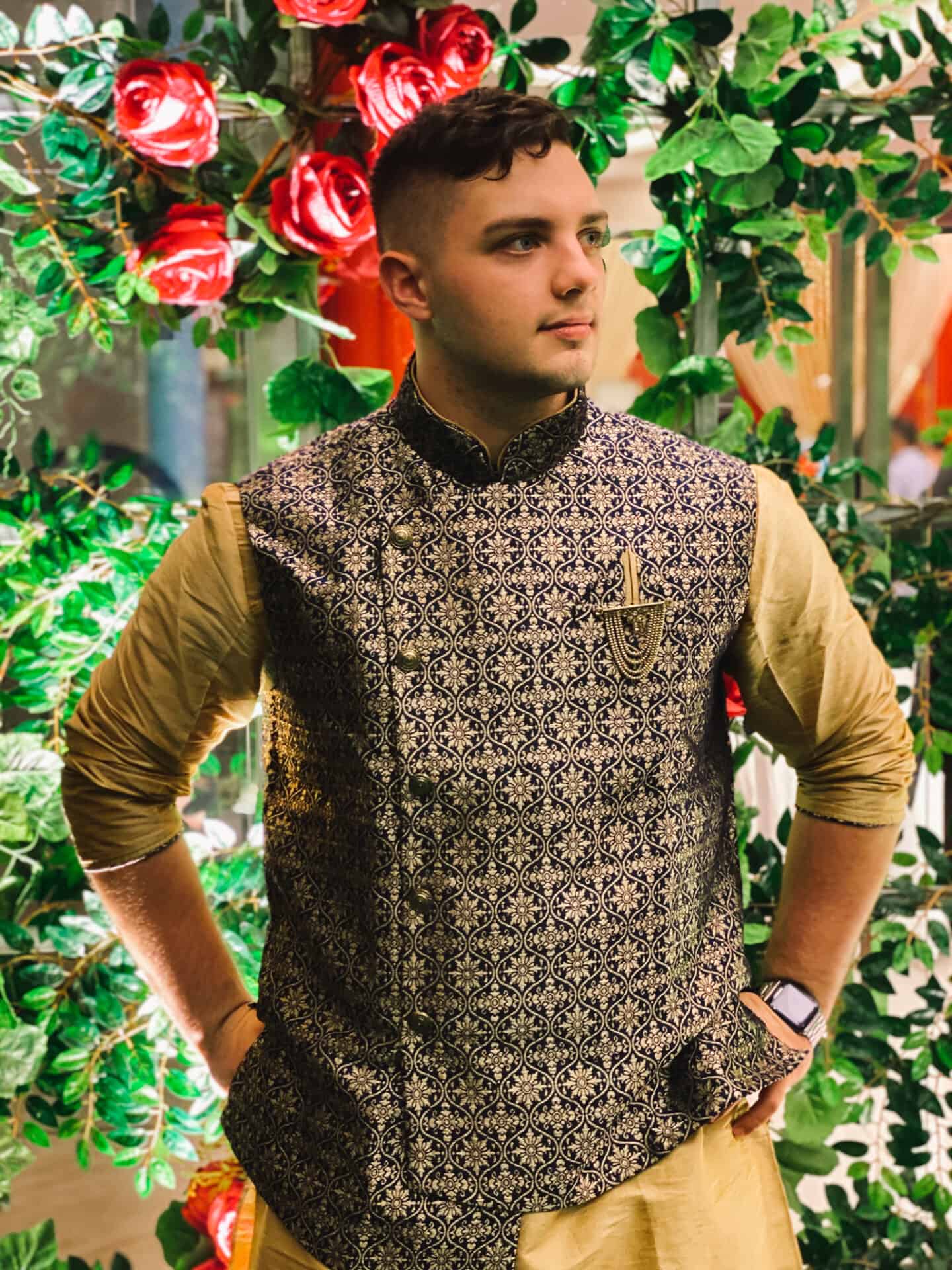

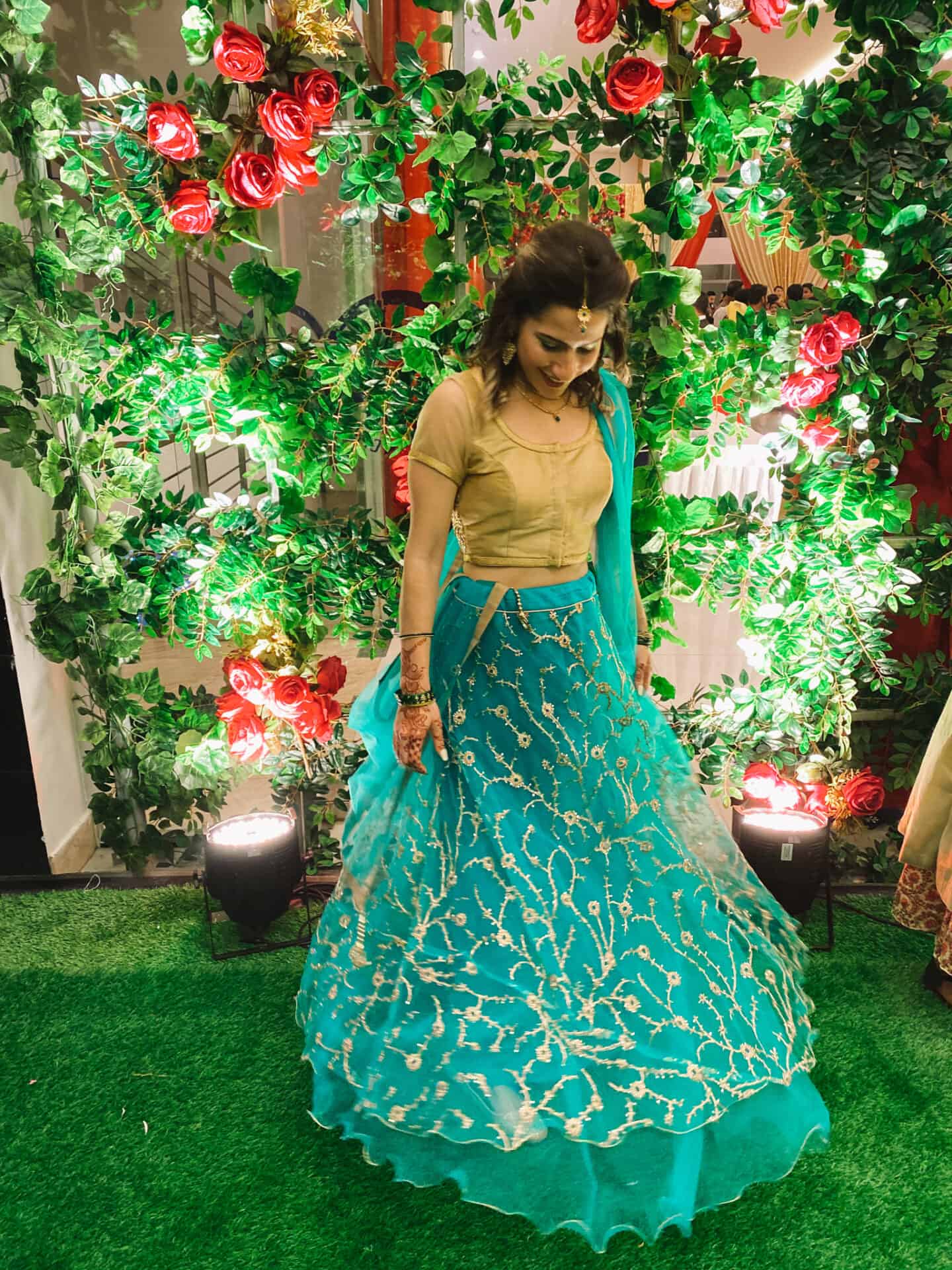
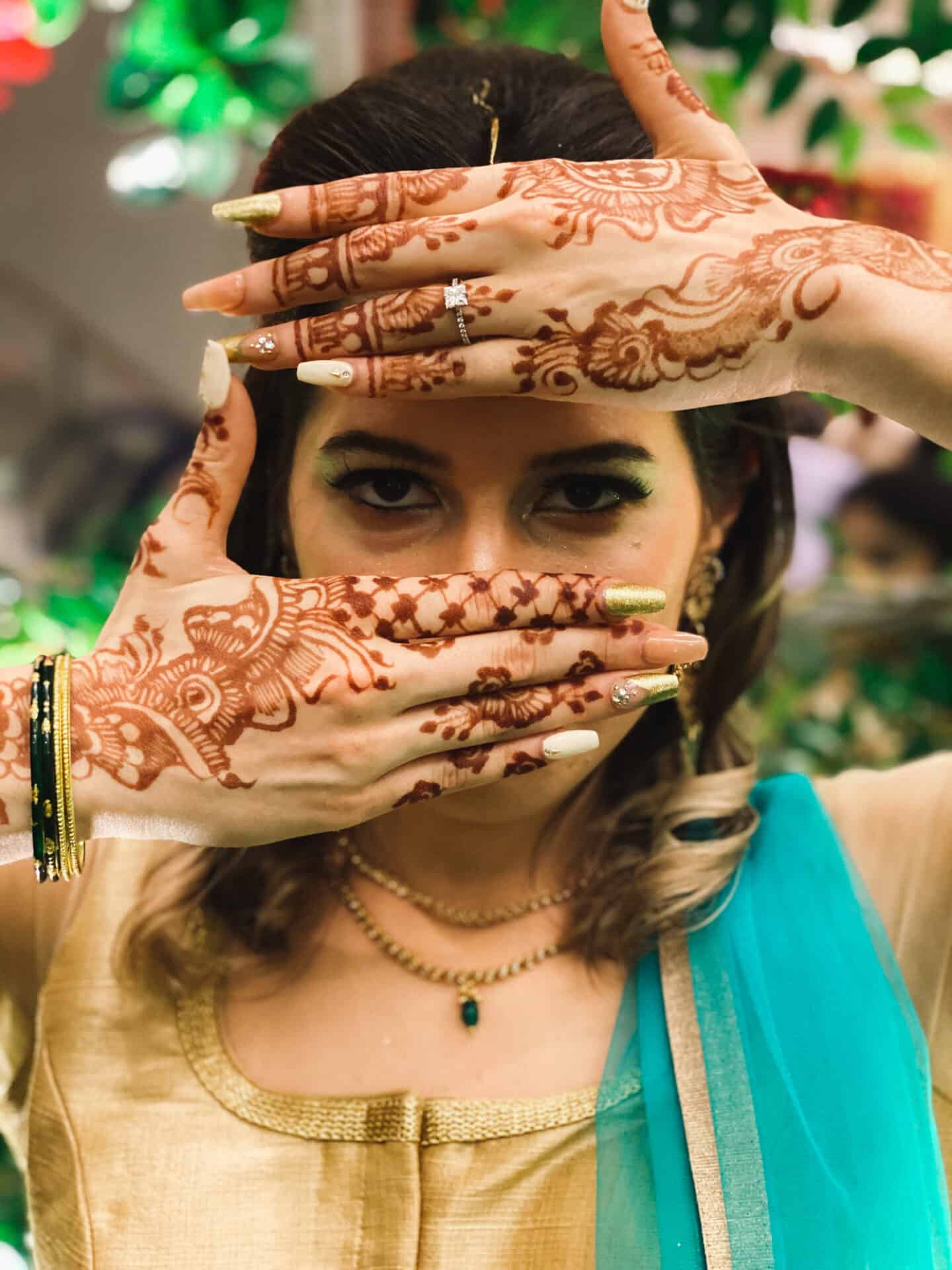

The way we handled all of the attention for being foreign was to laugh and take as many pictures with people as we could!
That’s all we have for you about Chittagong! Bangladesh is an incredible country, and hopefully this guide is helpful as you plan your trip to Chittagong. This post was written in collaboration with Fahim Alam, the owner of Fahimages who provided us with many of these pictures and tips. If you have any questions be sure to drop a comment in the comment section!
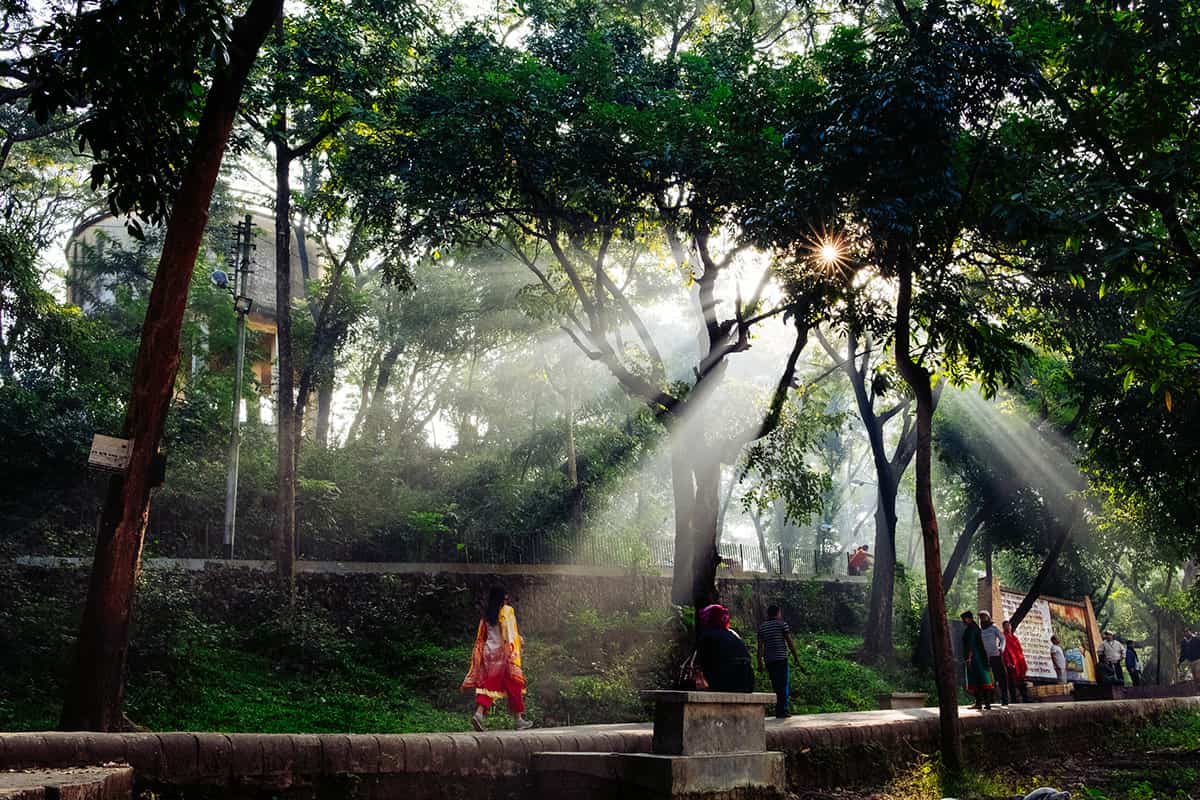






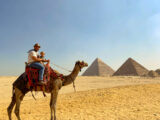


David
The warmth and hospitality of the people in Bangladesh make these places even more appealing. It’s the perfect blend of natural beauty and cultural immersion. Thanks for sharing!
Greg
Hi David,
Thanks for reading! I fully agree.
David
The warmth and hospitality of the people in Bangladesh make these places even more appealing. It’s the perfect blend of natural beauty and cultural immersion. Thanks for sharing!
Greg
I fully agree, David!